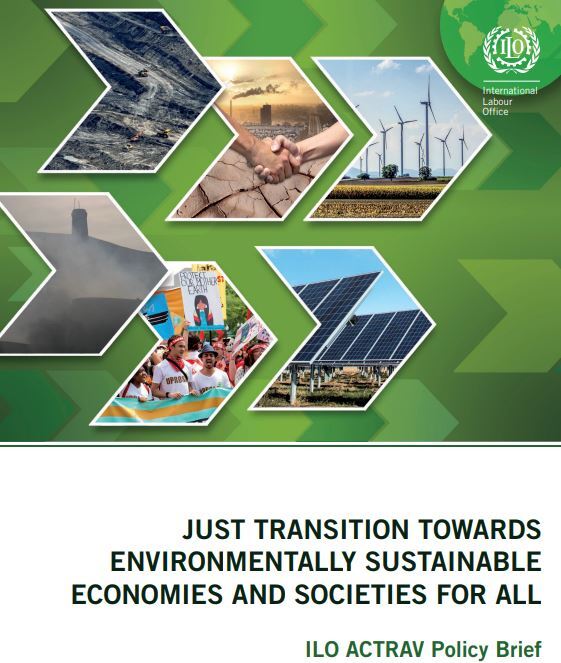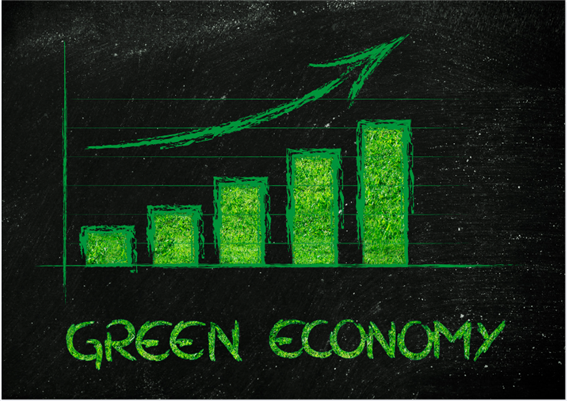―
When the power plant suddenly shuts down
―
“As of today, all oil and gas production will be suspended, and coal-fired power plants will also be shut down.
This is an
unavoidable measure to prevent global warming, so please cooperate.”
What
if one day the government made an announcement like the one above?
‘Wow! Many people will welcome this saying, “We can finally stop climate
change.” But what if you are a worker or a family member, employed in a
fossil fuel-related industry?
Making a livelihood will immediately become very challenging.

In addition, cities where fossil fuel-based energy industries are concentrated will not be able to function properly. Cities centered on coal mines or power plants will gradually decline.

Let's scale up by country.
Developing countries that have developed their economies relying on fossil
fuels will suffer greater damage than developed countries that are already well
under way in their transition to alternative energy sources. This will lead to
intensifying the polarization between countries.
As a solution to the climate crisis, the
international community has proposed “Net Zero by 2050,” which aims to reduce
carbon dioxide emissions to “zero” by absorbing as much carbon dioxide as it
emits.
The key to net zero is to
shift energy sources from fossil fuel-based sectors to low-carbon, clean energy
sources. To do this, it is necessary to mitigate the impact on workers and
communities working in high-carbon sectors.
This
is why we need an energy transition that mitigates shock, in other words, a ‘Just
Transition’.
―
What is a just transition?
―
‘Just Transition’ is a concept where society shares the shocks of
high-carbon industries, regions, workers, and small and medium-sized businesses
in the process of industrial structure transformation to achieve greenhouse gas
reduction targets.

In fact, 'just transition' is
a concept advocated by Tony Mazzocchi, an American petrochemical and nuclear
power union activist in the 1970s. When this concept was first used, it meant a
policy to support the unemployed due to occupational safety and health and
eco-friendly policies, but gradually the concept was expanded to include the
creation of new quality jobs that protect workers in the process of
transitioning to an eco-friendly and sustainable economy.
After that, the ILO, the UN, and
other organizations made an international agreement on the climate crisis and
received international attention as they conceptualized a ‘just transition.’
In recent years, when the
world is transitioning to a low-carbon society, it is important to identify the current
status of regions and industries where social and economic inequality is
deepening, which have come to mean job losses for high-carbon workers
and the impact on the local economy, and to prepare supportive measures.
Why International Organizations and Governments of Major Advanced Countries Are
Paying Attention to Just Transition

The reason why international
organizations and governments of major advanced countries pay attention to a
just transition is that, first of all, if jobs that are lost or replaced due
to industrial transition are neglected, the lives of regions and workers will
be severely impacted. Therefore, to prevent such collateral effects, active measures such as
education and training, job creation measures, and local economy revitalization
measures are needed.
The next reason is because the energy transition
can create new jobs, not just destroy them. If the government and labor
and management cooperate to create quality jobs related to new energy, it will
help national competitiveness, right?
For this reason, major European countries such as
Germany and the UK and developed countries in North America such as Canada are
actively promoting a just transition.
At the 2021th General
Assembly (COP26), the 'Declaration on Just Transition' was announced.

―
The promise of the international community for a ‘just transition'
―
In creating a world that abandons fossil fuels and
returns to energy obtained from the sun, wind and water, the most important
things to consider are ‘energy’ and ‘people’. In other words, the energy
transition must be done simultaneously with the transition to ‘quality jobs’.
If we look at the cases of
major advanced countries that are pursuing a just transition, we can see some
important implications. ▲ Huge financial resources were
prepared to compensate for the conversion of industries and to create new jobs;
▲ Active cooperation is pursued through dialogue with
labor and management and stakeholders; ▲ Active
intervention of labor unions and policy proposals are reflected.

The International Labor Organization (ILO) prepared
guidelines for a just transition in 2015, and produced guidelines for a just
transition in 2018. The principles that the ILO is presenting for a just
transition are as follows.

(Just Transition Guidebook, International Labor
Organization)
Principles for a
Just Transition (ILO)
◎ A
strong social consensus is needed on the goals of sustainability and the path
to achieve them. There should be sufficient discussion based on shared
information among all stakeholders.
◎ In
the workplace, the basic principles and rights of workers must be realized, and
significant challenges and opportunities in gender inequality in must be taken
into account.
◎ Businesses, workers,
investors, and consumers should be provided with
consistent policies across the economic, environmental, social, educational and
labor sectors to support the transition toward a sustainable and inclusive
economy and society.
◎ These coherent policies should
also provide a framework for a just transition for all that creates more
decent jobs. This includes (1) appropriate social protection for the unemployed or former job, (2) skill
development, and (3) social dialogue, based on employment projections.
◎ Various policies and programs
must be tailored to national circumstances; it is important to strengthen
international cooperation in the implementation of
the Sustainable Development Strategy.
―
The Efforts of European Countries, toward the ‘Just Transition’
―

Currently,
the European Union (EU) is promoting the ‘Just Transition’ policy most rapidly. For the
smooth implementation of the European Green Deal, which was finalized in
January 2020, the European Commission has formulated a ‘Just Transition Mechanism’ to support regions dependent on the fossil fuel
industry, such as the coal industry.
The EU's 'Just Transition Mechanism' is to protect areas within the EU that are highly dependent on fossil fuels and carbon-intensive industries, and by 2030, 100 billion euros ($105,666,289,600 USD) will be provided to coal districts.

Shall we take a look at the specifics of the Just
Transition mechanism being promoted by the EU Commission?
Principles of the Just Transition Mechanism Principles of the Just Transition Mechanism (EU)
△ Support the transition to a low-carbon economy and climate-resilient region △ Creation of new decent jobs for the green economy △ Improvement of technical support △ Active investment in renewable energy sources △ Improvement of digital technology △ Providing financial support at low interest rates △ Improving infrastructure for energy, district heating, and transportation |
We can see the intention to
provide economic support, job creation, and technical support so that no one is
left out in the process of transitioning to a new energy system.
The EU
Commission is also limiting programs that can be supported by the Just
Transition Fund. As it is a program with a big goal of transitioning to clean
energy, it supports businesses other than nuclear power plant construction or
dismantling, tobacco-related industries, fossil fuel-related investments, and
small and medium-sized enterprises (SMEs). They say they can't use the funds.

In line
with the EU mechanism, major European countries such as Germany, Spain, Greece,
and Poland are currently forming a Just Transition Committee to establish funds
and establish plans.
◇ Greece: Greece was the first country
in Europe to declare a 'coal phase' and established a 'Just Transition Fund.' In 2015, the local governments of five coal-fired
regions in Greece proposed establishing a Just Transition Fund with the
proceeds from the greenhouse gas emissions trading system.

Accordingly, in 2018, the
Greek government accepted the local administration's proposal to establish a
just transition fund and began preparations for the establishment of the fund. The Just Transition Fund was established to
phase out existing coal power plants from 2019 until 2023, and coal mines by
2028.
◇ Poland:
Poland, which has the largest coal industry in Europe, is preparing a
just transition plan at the national level and at the level of six coal
regions. Poland is said to be establishing a roadmap to close its mines by 2030 in order to receive
support from the EU's Just Transition Fund, and plans to significantly reduce
coal production.
◇ Germany: Germany is supporting various
projects to build infrastructure and foster new industries in areas where coal
mines and power plants are closed, on the scale of 40 billion euros
($41,812,615,840 USD) by 2038.
◇ Spain: Spain has entered into various
types of just transition agreements with areas where coal mines, coal power
plants, and nuclear power plants are closed, and has invested in clean
energy projects with European and national funds, early retirement of mine
workers, retraining for green jobs, and support for environmental restoration.
―
It is time to think about
energy conversion that minimizes human sacrifice.
―

One of the things that distinguishes
humans from animals is that we have a heart able to worry not only about ourselves,
but also about our colleagues, neighbors, and the next generation. Truly,
history can be said to be the footsteps of revision after revision as altruism
made a breakthrough in the struggle against selfishness.
The solution to the climate
crisis now seems self-evident. Ultimately, it is to convert the carbon-based
industry that has been warming the earth for the past 200 years into a
“zero-carbon industry” so that the global temperature is no longer raised.
At the beginning of the great
transition to zero-carbon, eco-friendly energy, we now have to think more
specifically about the job transformation that will result from industrial
transformation.
Closure of
all thermal power plants by 2050, what to prepare for the countless workers
around the world who will lose their livelihoods in the process, how to
revitalize the economies of regions that were previously carbon-based, and how
to narrow the inequality gap between countries….
It seems that it is time to gather our wisdom and show our altruism to a great extent on the tasks related to the great energy shift.
Written by Sharon Choi
Director of Planning
Sunhak Peace Prize Secretariat

